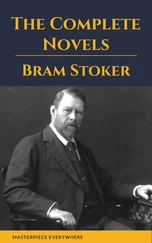Godigisel was taken alive and his men fled back to their camp. Marcomir then made his mistake. He camped where he had fought, eight hundred yards from the enemy, and, all night long, we on the west bank could see the flicker of his fires and hear the sounds of Godigisel dying. Few of us slept, and in the morning when I met Quintus upon the guard-walk his face looked as sick as my own. Three hours later Respendial led his men out onto the plain and attacked Marcomir as he was striking camp. Outnumbered, the Franks withdrew in disorder to the hills while small bands, who found themselves cut off, were hunted westward to the banks of the Rhenus and drowned in the shallows. Goar watched the fighting from the scrub and did not allow his men to take part. He had no wish to set one half of his tribe against the other. The Franks were routed utterly.
Late that afternoon an embassy crossed the river and asked to see me. I could guess the purpose of their visit, so I ordered Rando’s daughter to be brought to me, and I received them in the courtyard outside my headquarters, surrounded by a guard of honour. Their leader was a wiry man in his fifties, brown eyed and arrogant in his manner.
“I bring for the General of the Romans a present from Respendial, King of the Alans,” he said. He held out a bundle, shook it slightly and the head of Marcomir fell to the ground and grinned at me with sightless eyes. The girl put her hand to her mouth, but said nothing. Quintus dropped his hand to his sword, and Aquila grunted with rage.
I said, coldly, “I am glad that you kill each other. It saves me the work.”
He bared his teeth and said, softly, “When we cross the river we shall do the same to you.” His eyes flickered from face to face. “All of you.”
The girl said, in a whisper, “I am glad he is dead. Glad, glad, glad.”
I heard her. I said, “The day you cross that river I shall crucify the daughter of Rando, a princess of the royal house, upon a stake on the river’s edge so that she may see you coming. Tell that to the Alemanni, whose bread you eat like the beggars that you are.”
“You would not dare.” He was white with rage. “It is against all custom. It is even against your own laws.” His sense of outrage and shock was genuine. His people had a high regard for women. They would steal them, make slaves of them, rape them and force them into marriage; but they did not torture them. That was stupid. It was a waste of a life that might breed and produce new warriors for the tribe.
I said, “There is nothing I would not dare to protect the lands of my emperor.”
He stared at me with unblinking eyes. “I believe you would,” he said. He nodded to the men with him and they left abruptly.
I went back to my office and the courtyard was empty but for the girl. She was white-faced and weeping.
Quintus limped after me. He said, coldly, “We should have helped them. Men fight best when there is something to fight for. If Marcomir could destroy the Siling Vandals we could have beaten the Alans. We had the opportunity to destroy them in one pitched battle.”
I said, “We had no bridge.”
“Only because you would not build one.”
“I told Marcomir we could not help him.”
“Yes,” he said. “You would do that, of course. I can hear you saying it.”
“It was my duty.”
He said, bitterly, “It always is your duty. Marcomir is dead. Do you ever think of people instead of things?”
I was angry now. I said, “Do you question my command?”
He hesitated. He said, “I question your judgement. There is always a risk in battle. This was our opportunity, and you threw it away.” He added in a low voice, “You did not even ask my opinion.”
“There was no time. I was on one side of the river and you on the other.”
“There would have been if we had had the bridge.”
“But we had no bridge.”
He breathed heavily. “No,” he said. “You are not good at building bridges.”
“At least I do not break them down.”
He flushed and turned away.
The tribes across the river buried their dead, repaired their camp and nursed their wounded. There was little they could do except wait, and time was on my side and not on theirs.
Fabianus returned to the Franks and tried to put new heart into them, but many deserted, some to join the Alans, others to seek refuge in the shadow of Guntiarus and the Burgundians. Goar at least did not lose his nerve. He quietly annexed the Frankish land on the right bank and made preparations to defend it; but whether against me or against his own kind I could not be certain. I did not trust him as I had trusted Marcomir.
Reports came in that more waggons had been seen moving out and that, imperceptible though it might seem, the camp was thinning slowly, as families and clans moved back to the east in search of better sites in which to pass the winter. Like a swarm of locusts, they had stripped the land bare on which they had lived all summer, and starvation threatened them at last.
Acting on my instructions, a cohort at Bingium moved across the river and, with troops working hard on both sides, the fort commander began to construct a wooden bridge. The river at this point was four hundred yards across; the weight of the moving water and the speed of the current was tremendous, and there was great difficulty in sinking the piles accurately. The water was bringing down a great mass of stone and shingle from higher up, so that the shoals and sandbanks were constantly changing shape and altering their position. Nevertheless the bridge was finished and ready for use eight days after the first tree was felled.
I had it in mind to risk all on a single throw, move the legion across the river at the end of October and engage all that remained of the enemy in battle, relying on the fact that by that time their courage would be at a low ebb. Quintus urged this course every time we met. We argued the matter with cold hostility. He was confident that the risk would be worthwhile and that the shock of one more defeat would finally extinguish their hopes of forcing a crossing. I was not quite so certain. It was I who bore the final responsibility; not he.
During this time I saw little of our prisoner. She had recovered from her beating and gave no more trouble. Occasionally I saw her at a distance, walking through the camp with a guard behind her, but if she saw me she turned her head and looked the other way. Sometimes, one of the tribunes was with her. It might be young Marius who came from Arelate, or Severus who had joined us after Pollentia. Occasionally it was Didius, one of Quintus’ more promising squadron commanders, who had been transferred to us nine months ago from a cavalry unit in Hispania. Usually, however, it was Fabianus; but I did not ask questions. He worked hard, as they all did, and if he found it amusing to spend his spare time in her company that was his affair, not mine.
In the second week of September I received a series of agitated messages from the fort commander at Bingium; Guntiarus was on the far bank, asking permission to cross. He wished to see me on a matter of great urgency. I sent a message back saying that he was to remain on the east bank and that I would come to visit him in his berg as soon as my duties permitted.
When he heard of this Quintus said, bleakly, “He wants more tribute. I can smell his demands a mile away. He is a greedy man. He offered no help to Marcomir. He thinks only of himself.”
I said, “He is not alone in that.” I pointed to my desk. “I have just received the answers to my other letters.”
“What do they say?”
“The Praefectus Praetorio is cautious and diplomatic. I may call on the field army if I need it, but the field army is not to enter Belgica unless and until the barbarians cross the Rhenus. He is afraid, you see, that I might have ambitions to set myself up in his place. The news from Britannia will not have helped.”
Читать дальше












